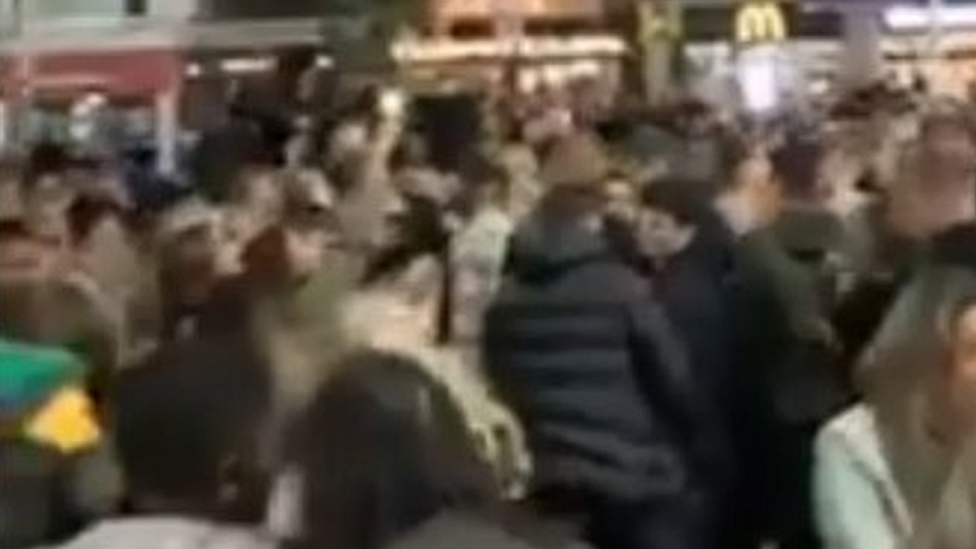Covid-19: Cities fear 'huge' economic impact of restrictions
- Published
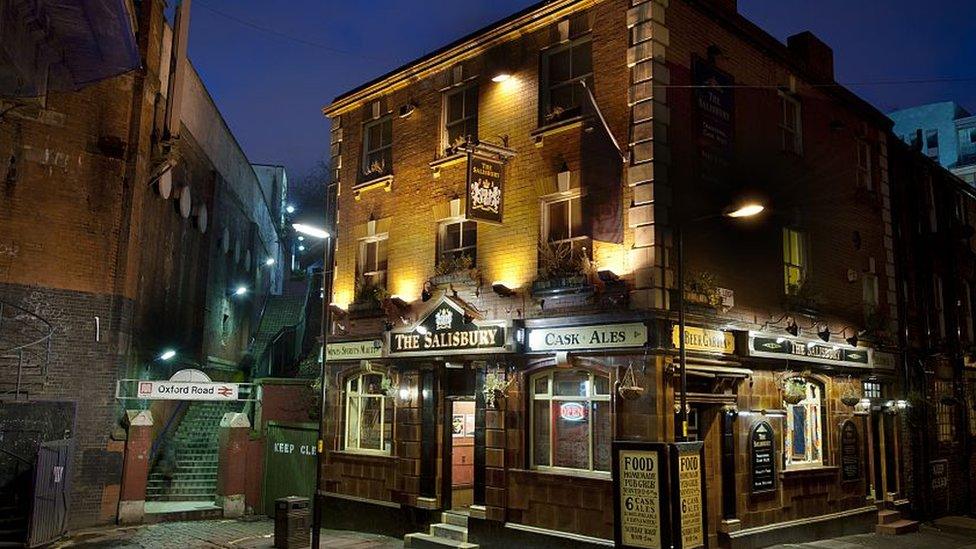
Council leaders say a balance is needed between protecting public health and protecting businesses
The hospitality sector in three cities faces "complete decimation" if local coronavirus restrictions are not reviewed, council leaders have warned.
It comes in a letter to the health and business secretaries from the council leaders and chief executives of Leeds, Liverpool and Manchester.
They say hotel occupancy had fallen by 30% and footfall by 70% and warn of a disproportionate economic impact.
The government said it was working closely with local authorities.
A legally enforced ban on household mixing in public spaces, including pubs and restaurants, was announced for parts of the north east of England on Monday.
However, such measures remain as guidance, not the law, in Leeds, Liverpool and Manchester, which the council leaders say is "contradictory and confusing" and "unenforceable".
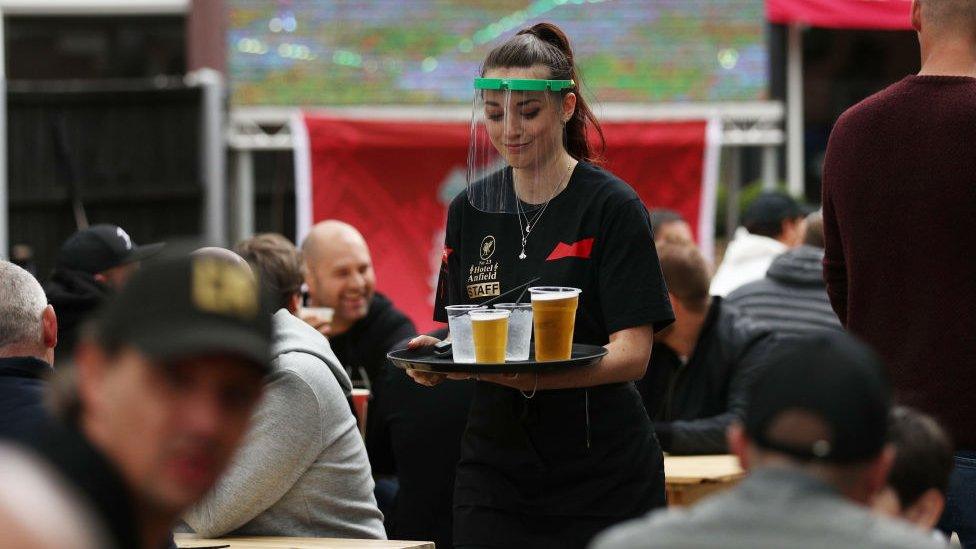
The leaders say the hospitality industry faces a "complete decimation of trade"
In the letter to Health Secretary Matt Hancock and Business Secretary Alok Sharma, the leaders warn the sector faces a "complete decimation" in trade over the Christmas period and continuing into 2021.
It would "result in mass market failure, huge levels of redundancies and depleted and boarded up high streets", they added.
They want the government to make the advice about households not mixing in indoor venues a legal requirement and to compensate businesses with support, or allow mixing within the "rule of six" guidelines.
The leaders also asked for a review of the 22:00 curfew on bars and restaurants.
Liverpool's Mayor Joe Anderson said: "We need to find a way to adjust the restrictions to ensure a balance in protecting public health and the need to protect businesses, many of which are teetering on the brink.
"Liverpool is a city which has built its revival on the leisure and hospitality sectors and it is a massive contributor not just to employment but also to business rates which fund vital local services."
He said the vast majority of businesses had invested heavily to follow the guidelines.
A Department for Health and Social Care spokesperson said it was taking a targeted and localised approach in areas with a high number of cases and constantly monitoring infection levels.
"We know a large number [of infections] are occurring in indoor settings outside of the home and we will introduce legal restrictions where and when it is appropriate."

THE R NUMBER: What it means and why it matters
SOCIAL DISTANCING: What are the rules now?
LOOK-UP TOOL: How many cases in your area?
SOCIAL LIFE: Is it safe to go to the pub?

- Published29 September 2020
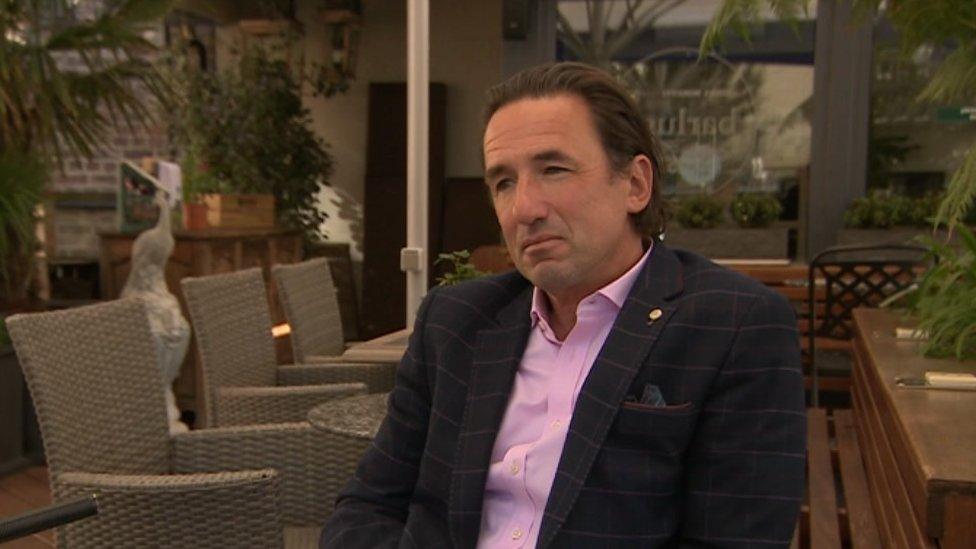
- Published28 September 2020
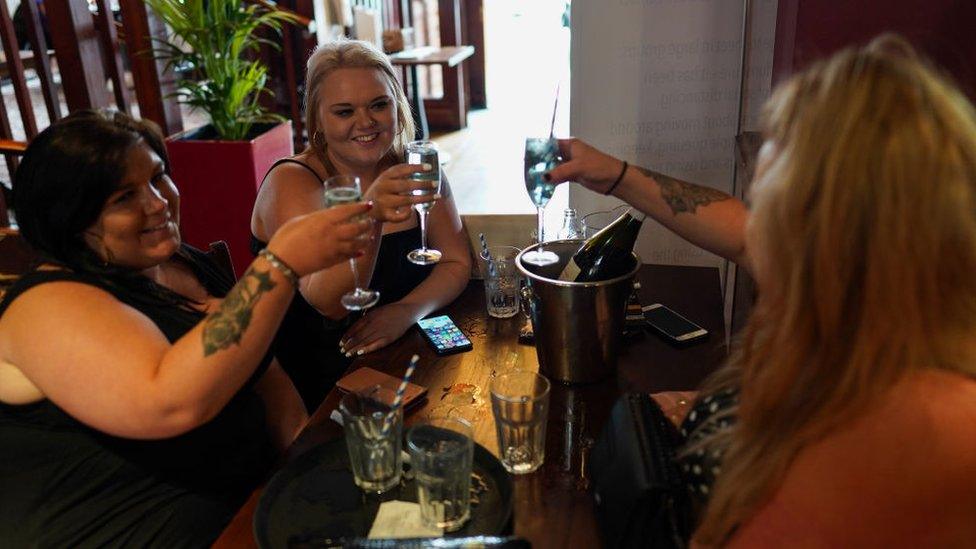
- Published27 November 2020
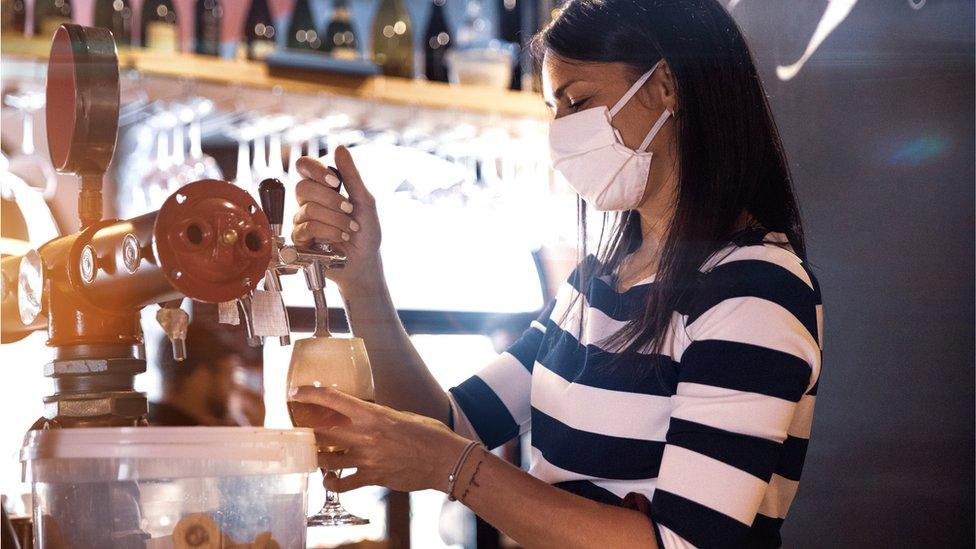
- Published27 September 2020
